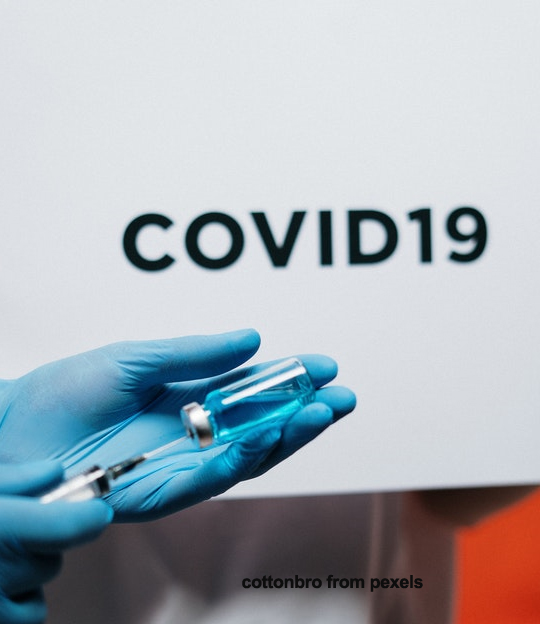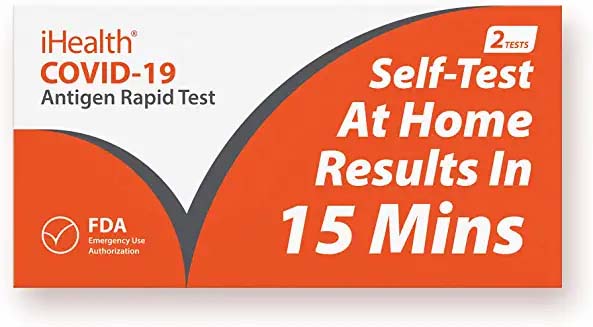COVID and
IMMUNE DEFICIENCY
Is there a direct connection between COVID and immune deficiency? Can COVID create an immune deficiency in those who contract a COVID-19 infection (severe, mild or asymptomatic) putting us all at risk for future infections? If you follow social media, you may even have seen COVID-19 categorized as ‘airborne AIDS.’
CHANGES IN IMMUNE SYSTEMS DETECTED
Scientists have been studying the effect of COVID on immune systems from the start of the COVID-19 pandemic. When looking at the blood cells of patients in critical care, those with a severe COVID-19 infection (especially those who did not receive the vaccine) showed significant changes in the generation of their immune cells. This is quite unusual for an infectious disease.
When long COVID was recognized, scientists began to scrutinize the effects of long COVID on those patients. The results were not encouraging. Examples included a decrease in the number of dendritic cells which help decide if a more targeted response is needed by the immune system, an increase in T cells, apparently signaling their exhaustion, as well as accelerated biological aging of our immune system.
But why were scientists finding all these changes? One of the reasons why is that no infectious disease has received the attention that COVID-19 has. If you are looking for something with that kind of concentrated and multidisciplinary attention, you will probably find it!
CHANGES IN IMMUNE SYSTEMS
PUT INTO CONTEXT
A closer look at the workings of the immune system can put these changes into context. For example, our T cells, the most important fighters in our immune response to infection, can become exhausted due to a recuring infection such as in malaria. This exhaustion is a way for the body to protect itself from collateral damage. Finding exhausted T cells does not mean they are never going to be able to protect us again.
Social media sometimes focuses on preliminary laboratory findings that have not been peer-reviewed and can cause needless panic.
The truth is that a temporary change in one type of immune ‘soldier’ (our antibodies and memory T and B cells) does not mean the collapse of the entire army.
THE CLINICAL EVIDENCE
If COVID can create an immune deficiency in our bodies, we must study clinical evidence to find out if a COVID-19 infection can seriously impair our immune systems. If so, we should expect to see other infections in those who have recovered from COVID-19. There is a bit of clinical evidence showing increases in RSV in the US, strep throat, and pink eye in Israel, and increases in autoimmune conditions in Germany.
However, it must be said and understood that severe viral infections will definitely leave the body vulnerable to further infections. This is because it is easier for microbes to get in when our immune system is temporarily damaged by a particularly bad virus.
This is especially true when measures like mask mandates, remote schooling, and restrictions on indoor gatherings are lifted and there is exposure to pathogens all at once. The consequences are even greater for those put in the hospital because of COVID.
But COVID is not special in this respect because being critically ill and in intensive care can also wreak havoc on the immune system. Severe respiratory infections such as the flu and pneumonia can also accelerate dementia, frailty, and metabolic issues.
ARE THOSE WHO ARE VACCINATED AT A LOWER RISK
FROM BEING HOSPITALIZED
FROM COVID?
Is the risk of being hospitalized when catching the COVID virus much smaller for those who have been vaccinated? The answer is the data (as of March 2023) shows that milder infections don’t challenge our immune systems. If they did, we would expect a wave of infections such as shingles, herpes, thrush, etc. That has not been the case.
MEASLES and AIDS vs COVID-19
Measles and AIDS infections produce molecular and cellular changes that translate to illness. AIDS completely destroys T Cells and Measles produces a kind of immune amnesia, destroying the memory of the disease because it infects the memory cells.
The current data (as of March 2023) shows that while COVID-19 is good at evading our immune systems, the molecular and cellular changes post-COVID do not always translate to illness.
LONG COVID EFFECTS
Long COVID is a problem because the development of persisting symptoms and long COVID is still not well-defined. It appears currently to be an umbrella term for different conditions.
In some, the conditions are caused by a persistence of the virus in the body. In others, it is the development of antibodies that start attacking healthy tissue. And, in others, tiny blood clots due to viral persistence and autoantibodies.
Unfortunately, there is a lack of effective medical care for long COVID patients allowing people who capitalize on the ‘airborne AIDS’ idea to prescribe potent drugs that target the immune system. When these drugs are given to treat COVID and have not been adequately tested in clinical trial settings, there are real risks.
COVID VACCINATIONS
It has been shown to be clear that the best way to reduce the risk of immune system damage is by being up to date on COVID vaccines.
There are still valid reasons to still be concerned about the COVID-19 infection, especially cardiac complications, even in mild cases, and the possibility of lasting damage through long COVID.
SUMMARY
What is the answer then? Is there a direct connection been COVID infection and immune deficiency? Does a COVID-19 infection actually create immunodeficiency?
The short answer is that based on what data we now have, we know that COVID-19 can affect the immune system, especially during the acute phase of a severe infection and in some of the cases of long COVID. But much more research into the long-term consequences of an infection with COVID-19 may eventually end up changing our understanding of how the virus affects our immune system.
At the moment, there is no need to panic since the reported changes in the molecules and cells of our immune system following a COVID-19 infection do not necessarily imply a loss of function and the current clinical evidence does not show that a mild case of COVID-19 infection can cause a significant immunodeficiency.
Please note: Scientific information for this article was in part used with permission from the McGill University Office of Science and Society.
Top of COVID and Immune Deficiency
"The Cleanest Clean You've Ever Seen."
by
ABC Oriental Rug & Carpet Cleaning Co.
130 Cecil Malone Drive Ithaca, NY 14850
607-272-1566






